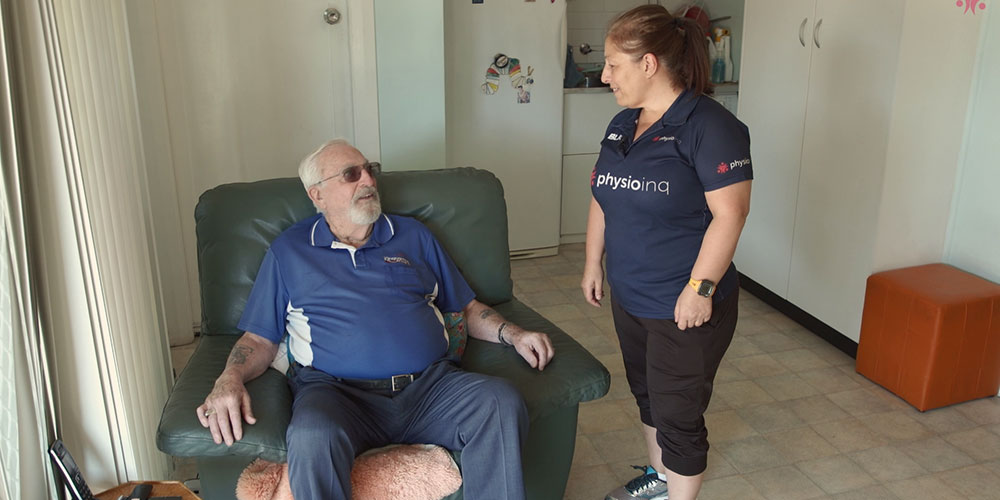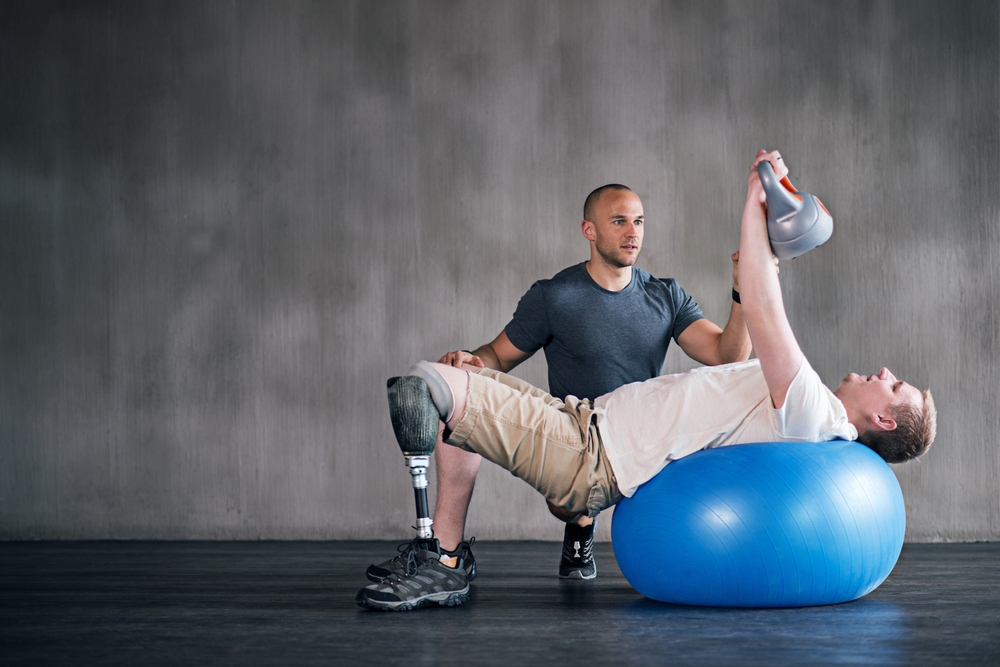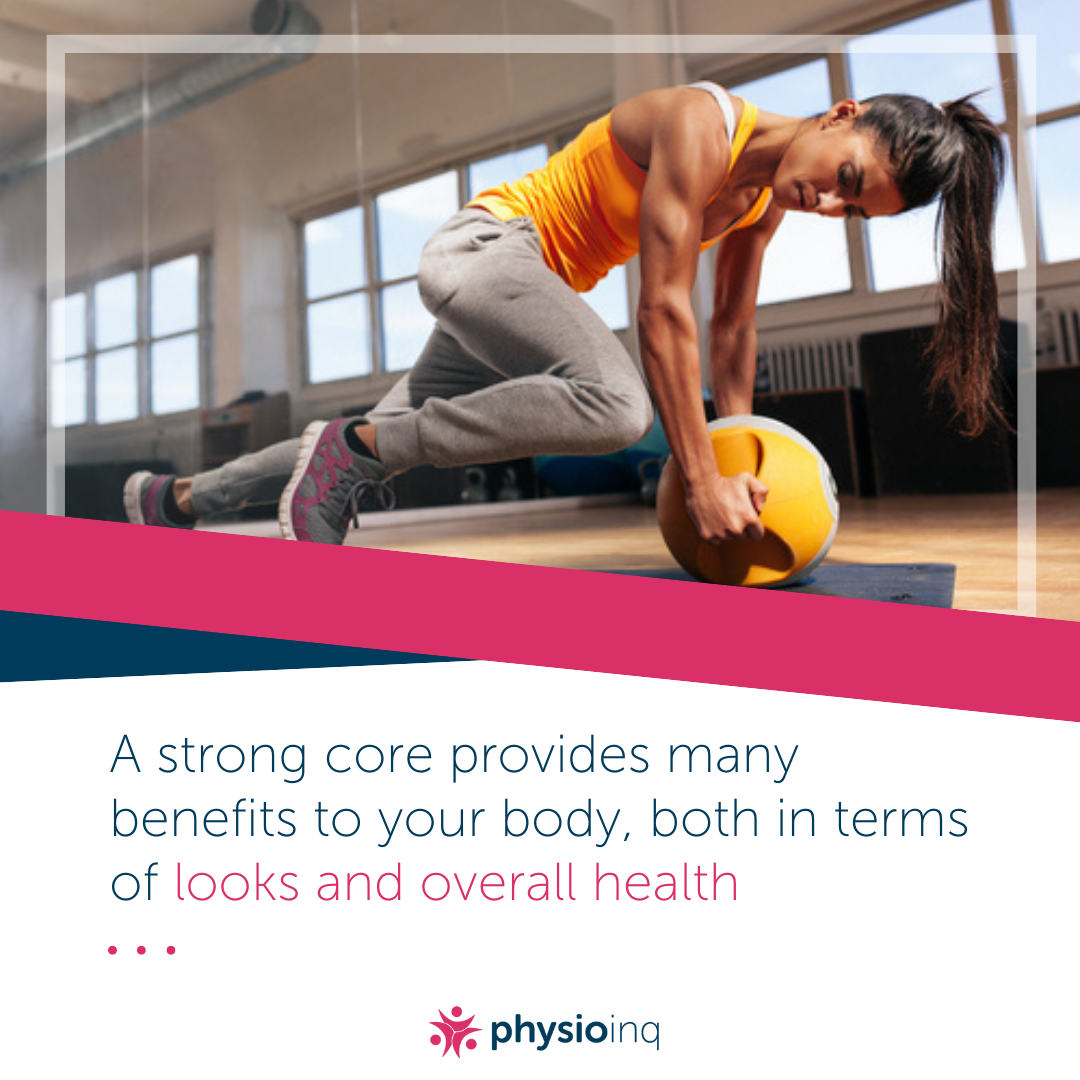Make an Appointment
Welcoming a new baby into the world can be one of the most rewarding experiences in a woman's life. However, the postpartum period can be challenging both physically and emotionally.
Many women experience physical discomfort, pain, and weakness after childbirth, which can make it difficult to care for themselves and their newborn. This is where postpartum physiotherapy can be of great help. In this article, we'll explore what postpartum physiotherapy is, how it can benefit women after childbirth, and what to expect from a postpartum physiotherapy session.
What is Postpartum Physiotherapy?
Postpartum physiotherapy is a type of physiotherapy that helps women recover from the physical stresses of pregnancy and childbirth. During pregnancy, a woman's body undergoes significant changes to accommodate the growing fetus. These changes can put strain on the body's muscles, ligaments, and connective tissue. Additionally, during childbirth, the pelvic floor muscles and tissues can become stretched and weakened, leading to issues such as urinary incontinence, pelvic pain, and other complications.
Postpartum physiotherapy can help address these issues by focusing on strengthening and reconditioning the body after childbirth. A women's health physiotherapist who specializes in postnatal physiotherapy can help develop a personalized treatment plan based on each woman's individual needs. This can include specific exercises to strengthen the abdominal and pelvic floor muscles, as well as education on proper posture and body mechanics to prevent future injury.
Physio Inq women's health postpartum physiotherapy services provide women with the necessary support and care to help them recover from childbirth. A women's health physiotherapist can perform a pelvic floor assessment to identify any issues that need to be addressed. This assessment can help determine the type of postpartum physiotherapy that is best suited for each woman's needs.
When Can I Start Physiotherapy After Pregnancy?
The general timeline for starting postpartum physiotherapy is around 6 weeks after childbirth. However, this timeline can vary depending on individual circumstances. Women who had a complicated childbirth, such as a C-section or a traumatic vaginal birth, may need to wait longer before starting physiotherapy. Additionally, women who have pre-existing medical conditions or injuries may need to wait until they are fully healed before starting physiotherapy.
It's important to consult with a healthcare provider before starting any physiotherapy after childbirth. A women's health physiotherapist can help determine when it's safe to start physiotherapy and develop a personalized treatment plan based on each woman's individual needs.
Is Physiotherapy Good for Postpartum?
Yes, physiotherapy is highly beneficial for postpartum women. Postpartum physiotherapy can help address a variety of issues that women experience after childbirth. This includes pelvic pain, incontinence, and weakened muscles.
Pelvic pain is a common issue that women experience after childbirth. It can be caused by a variety of factors, such as muscle strains or tears during childbirth. Postpartum physiotherapy can help address pelvic pain by focusing on strengthening the pelvic floor muscles and providing education on proper posture and body mechanics.
Urinary incontinence is another common issue that women experience after childbirth. This can be caused by weakened pelvic floor muscles that can no longer support the bladder. Postpartum physiotherapy can help address urinary incontinence by focusing on pelvic floor muscle exercises that help strengthen the muscles and improve bladder control.
Weakened muscles are also a common issue that women experience after childbirth. This can be caused by the strain of carrying a baby and the physical stresses of childbirth. Postpartum physiotherapy can help address weakened muscles by providing specific exercises to strengthen the abdominal and pelvic floor muscles, as well as other muscle groups that may have been affected during pregnancy.
When Should I See Pelvic Floor Physiotherapist After Birth?
It's recommended that women see a pelvic floor physiotherapist 6 weeks after childbirth, regardless of whether they had a vaginal or C-section birth. This is because childbirth can put significant strain on the pelvic floor muscles and tissues, which can lead to issues such as urinary incontinence, pelvic pain, and other complications.
A pelvic floor assessment can help identify any issues that need to be addressed and can help determine the type of postpartum physiotherapy that is best suited for each woman's needs. It's important to note that even if a woman is not experiencing any issues, it's still recommended to see a pelvic floor physiotherapist to ensure that everything is functioning properly.

What Can I Expect from Postpartum Physiotherapy?
During a postpartum physiotherapy session, a women's health physiotherapist will work with the woman to develop a personalized treatment plan based on her individual needs. This can include specific exercises to strengthen the abdominal and pelvic floor muscles, as well as education on proper posture and body mechanics to prevent future injury.
In addition to exercises, postpartum physiotherapy may also involve other techniques such as massage, manual therapy, and stretching. The goal of postpartum physiotherapy is to help women recover from the physical stresses of pregnancy and childbirth and improve their overall quality of life.
How Long Should You Rest Postpartum?
Rest is an important aspect of postpartum recovery, but it's important to strike a balance between rest and movement. It's recommended that women avoid high-impact activities for at least 6 weeks after childbirth. This includes activities such as running, jumping, and other activities that put strain on the body's muscles and tissues.
However, it's also important to engage in light exercise and movement to help promote healing and prevent complications such as blood clots. Walking, gentle stretching, and other low-impact activities can be beneficial during the postpartum period. It's important to consult with a healthcare provider before starting any exercise program after childbirth to ensure that it's safe and appropriate for individual needs.
What Are the Three Stages of Postpartum?
The postpartum period is typically divided into three stages:
1. The immediate postpartum period: This is the first 24-48 hours after childbirth. During this time, the focus is on monitoring the mother and baby's health and ensuring that both are stable.
2. The early postpartum period: This period lasts from 2-6 weeks after childbirth. During this time, women are adjusting to the physical and emotional changes of motherhood and may experience physical discomfort and pain.
3. The late postpartum period: This period lasts from 6 weeks to 6 months after childbirth. During this time, women are continuing to recover from childbirth and adjusting to their new role as a mother.
What Should You Avoid During Postpartum?
During the postpartum period, it's important to avoid high-impact activities and any activities that put strain on the body's muscles and tissues. This includes activities such as running, jumping, and other high-impact exercises.
Additionally, it's important to avoid lifting heavy objects, as this can put strain on the abdominal muscles and pelvic floor muscles. It's recommended to wait until 6 weeks after childbirth before lifting anything heavier than the baby.
It's also important to avoid any activities that may put pressure on the bladder or bowel, as this can lead to issues such as urinary incontinence and constipation.
What Is the 5-5-5 Rule Postpartum?
The 5-5-5 rule is a general guideline for postpartum recovery that can help women pace themselves and ensure that they are getting the rest and care that they need. The rule states that women should aim to:
Rest for 5 days: This means limiting physical activity as much as possible and focusing on rest and recovery.
Stay close to home for 5 weeks: This means avoiding unnecessary travel or outings and focusing on staying close to home to ensure that there is access to healthcare if needed.
Avoid strenuous activity for 5 months: This means avoiding high-impact exercise and other strenuous activities for at least 5 months after childbirth to ensure proper healing.
Postpartum physiotherapy can be an essential component of postpartum care for women, helping to address the physical stresses of pregnancy and childbirth and improve overall quality of life.
By working with a women's health physiotherapist, women can develop a personalized treatment plan that includes specific exercises to strengthen the abdominal and pelvic floor muscles, as well as other muscle groups that may have been affected during pregnancy. It's recommended to see a pelvic floor physiotherapist 6 weeks after childbirth to ensure that any issues are identified and treated promptly.
In addition to exercise, rest and self-care are important aspects of postpartum recovery. The 5-5-5 rule can be a helpful guideline for women as they navigate the postpartum period, ensuring that they are getting the rest and care that they need to recover properly.
It's important for women to prioritize their physical health and well-being after childbirth, and seeking the support of a women's health physiotherapist can be an important step in this process.
If you're in need of postpartum physiotherapy services, we encourage you to book an appointment with our team at Physio Inq.
Our women's health physiotherapists are highly skilled and experienced in working with women during the postpartum period and are dedicated to helping women achieve optimal health and wellness right across Australia.
Alternatively, if you know someone who could benefit from postpartum physiotherapy services, please consider referring them to us. We're here to support women throughout their postpartum journey and look forward to working with you!

Date Published: Monday, March 13, 2023
Locate a Womens Health Physiotherapy
Service Near me
Get the experience & convinence you deserve to support your or a loved one's allied health needs.
Our Womens Health Physiotherapy team are currently serving & taking appointments in the following states and regions in Australia:
Need to get into direct contact with ur Client Services team? We're all ears. Call our team directly on 1300 731 733
















